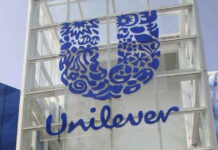By the BF Staff
From the July/August 2022 Issue
In its FY2021 Annual Report, Missouri Partnership reported on accomplishments derived from its three-year strategic plan (2019-21). As the plan came to a close, the group reported the results: 99.8% of targeted new jobs; 77% of targeted new annual payroll; and 117% of targeted new capital investment. Key industry sectors for the state include advanced manufacturing, aerospace and defense, agtech and food, distribution and logistics, energy solutions, financial and professional services, and health innovation.
In March 2022, Meta (formerly the Facebook company) announced plans to build its newest hyperscale data center in Kansas City, MO. The facility will be the first of its kind in the state, with Meta is investing more than $800 million and supporting up to 100 jobs in the region.
“Meta is excited to call Kansas City our new home,” said Darcy Nothnagle, Director of Community and Economic Development for the company. “It stands out with so much to offer—good access to infrastructure and fiber, a strong pool of talent for both construction and operations, and more than anything, great community partners.”

The tech giant made the announcement in March 2022. (Photo: Morgan miller photography)
The nearly one million-square-foot data center will be located in the Golden Plains Technology Park. It will be supported by 100% renewable energy.
“Projects of this magnitude are extraordinary. Meta’s decision to make such a hallmark investment in our state is a testament to Missouri’s reputation of being a reliable and solid destination for investment,” said Subash Alias, CEO of Missouri Partnership. “Meta also recognizes our exceedingly favorable business climate for such data centers as cited by the recently released Tax Foundation’s Location Matters study. We are so thrilled to welcome Meta to Missouri and look forward to a long-lasting relationship with this marquee company.”
Missouri’s central location in the U.S. provides improved network connectivity between coastal data centers. The region also can offer business operations less risk of natural disasters, as well as the region’s competitive energy prices and more options to power facilities using renewable energy resources.
“We’re proud to welcome Meta to Kansas City for this historic, cutting-edge development that will positively impact our state’s economy for years to come,” said Governor Mike Parson. “The Show-Me State stands out as a rising technology hub due to our strategic location, skilled workforce, and prime business climate. This unprecedented investment signals Missouri is open for business, and that our state is a prime destination for high-tech leaders and innovators alike.”
New Business: Waste-to-Energy Plant & Food Production
Circular SynTech, LLC (CST), a leader in transforming the waste management and chemical manufacturing industries, is expanding into New Madrid, MO. The company has broken ground on a new, one-of-a-kind facility that will convert municipal solid waste and construction and demolition debris into renewable chemicals.
“Through its patented proprietary technology, CST utilizes waste that has historically produced environmentally damaging greenhouse gases to create valuable chemicals and distillates that replace fossil fuels in a double win for the environment,” said Dan Dockter, CEO of CST. “The exceptionally professional and accommodating manner of the City, County, and State was a key factor in finding our new home in New Madrid, Missouri.”
The approximately 230-acre campus will be a premier waste-to-renewable chemicals facility. The company is investing an initial $91.4 million to create more than 40 immediate jobs in the region.
The City and County of New Madrid worked with Missouri Partnership, the Missouri Department of Economic Development, and Union Pacific Railroad to attract CST to the state. The new facility is slated to begin operations in 2022.
“We are excited to welcome CST to Missouri,” said Subash Alias, Missouri Partnership CEO. “It is so great that one of our newest companies plans to deploy new technologies to solve complex waste-to-renewables challenges while creating jobs and investment in our state. We were delighted to support our long-time friends in New Madrid and look forward to seeing this project flourish in the coming months.”
Meanwhile, the food processing industry in the state got a boost with Deli Star Corporation, a family-owned manufacturer of prepared meal proteins and deli solutions, cutting the ribbon on its new headquarters in St. Louis. The new facility represents more than $99 million in capital investment and is expected to bring 475 jobs to the state.

The 110,000-square-foot facility will produce Deli Star’s world-class proteins, including sous-vide proteins, slow cooked meats, deli logs, protein salads, sauces, and plant-based proteins.
Headquartered for 34 years in Fayetteville, IL, Deli Star’s production facilities were destroyed by a fire in January 2021. Deli Star executives to begin a search for new location opportunities, exploring local, regional, and out-of-state options. After an extensive search, Deli Star chose to continue business operations in the Greater St. Louis region, thanks in part to its skilled and available talent pool, low business costs, and quality of life.
The new facility is located near the company’s new Food Discovery Center, a food research and development hub. The close proximity of the two facilities will drive innovation and collaboration with local companies and organizations, including a new job training program with St. Louis Public Schools.
“We were very fortunate to work with our economic development partners to help bring Deli Star to Missouri, and keep it in the greater St. Louis region,” Missouri Partnership’s Alias said, when the project was announced. “Deli Star was approached by numerous states and communities as it began looking for a location to rebuild its headquarters. The fact that we were able to keep it in the region is a testament to the strengths of both our workforce, and our overall business climate. We have had a lot of interest by food processing companies here in Missouri. I look forward to seeing Deli Star Corporation thrive here in our state.”
Expansions: Soybean Processing & Defense Manufacturing
In May, Cargill, a global leader in food production and agricultural services, announced that it will build a new soybean processing facility near Caruthersville in Pemiscot County. When complete, the new facility will be one of Cargill’s largest soy processing facilities in North America and create 45 new jobs in the region.
“Agriculture is critically important to Missouri, and I’m thrilled to see a leading company like Cargill invest, create jobs, and strengthen this vital sector,” said Governor Parson. “Due to our focus on infrastructure and a skilled workforce, world-class companies are continuing to choose the Show-Me State as a place to grow. We look forward to the positive impact Cargill’s facility will have for farmers and all Missourians in the southeast region.”
“As a first-generation farmer and proud advocate for Missouri agriculture, I’m excited for Cargill’s expansion in Caruthersville,” said Lieutenant Governor Mike Kehoe. “This facility will support family farms and efforts to source more quality products from right here in Missouri. I’m grateful to Cargill and all those who worked together to make this project a reality, and am confident it will benefit Missourians for years to come.”
Cargill’s facility will have an annual production capacity of 62 million bushels as it collects, processes, and distributes soybean-derived protein, oils and soymeal products. The company anticipates breaking ground in early 2023, with operations beginning in 2026. The 45 new jobs created are expected to pay more than double the county average. When complete, the location will also support growing demand for food, feed, and fuel while offering farmers year-round access to grain markets.
“Cargill’s new facility, with its location on the Mississippi River, will operate year-round and provide farmers opportunity to take advantage of increased domestic demand versus relying solely on seasonal exports,” said Tim Coppage, Regional Commercial Lead, Cargill Agricultural Supply Chain North America. “We appreciate the strong support and partnership from state and local leaders, the Department of Economic Development, and the Missouri Soybean Association to bring this project to the region to connect growers to markets, create local jobs and support the state’s economic growth.”
Cargill has had a presence in Missouri since 1936 and employs nearly 1,200 people across nine locations in the state.
For this expansion, Cargill used the Missouri Works program, a tool that helps companies expand and retain workers by providing access to capital through withholdings or tax credits for job creation. The company is also receiving assistance from Missouri One Start, a division of the Department of Economic Development, that assists eligible businesses with recruitment and training needs.

In other news, defense manufacturer Leonardo DRS announced the start of the expansion of its manufacturing campus in West Plains, MO. The company’s expansion is expected to create more than 100 jobs and was enabled in part by a cooperative effort to construct a new overpass that addresses concerns related to logistics and efficiency.
To complete the overpass needed for its expansion, Leonardo DRS was supported by multiple organizations, including the City of West Plains. Additional support was provided by the Missouri Department of Economic Development’s Community Development Block Grant program, the U.S. Department of Commerce’s Economic Development Administration, the Delta Regional Authority’s Community Infrastructure Fund, the Missouri Department of Transportation, and the Burlington Northern Santa Fe (BNSF) Railway.
“The construction of the Independence Drive overpass was a key prerequisite for the continued growth of Leonardo DRS’ manufacturing campus in West Plains,” said Steve Foster, Leonardo DRS Vice President of Operations – Land Systems. “Because the campus is bisected by U.S. Route 160, it was important we arrived at a solution that addressed the safety of our community partners as well as DRS workers, while improving security and workflow connectivity. We very much appreciate the efforts of the City of West Plains, and many others at the local, state, and federal level who came together to ensure the continued success of this location and its community.”
For this expansion, Leonardo DRS used the Missouri Works program.















![[VIDEO] Get More for Your Business in Ardmore. Oklahoma](https://businessfacilities.com/wp-content/uploads/2024/02/maxresdefault-324x160.jpg)
